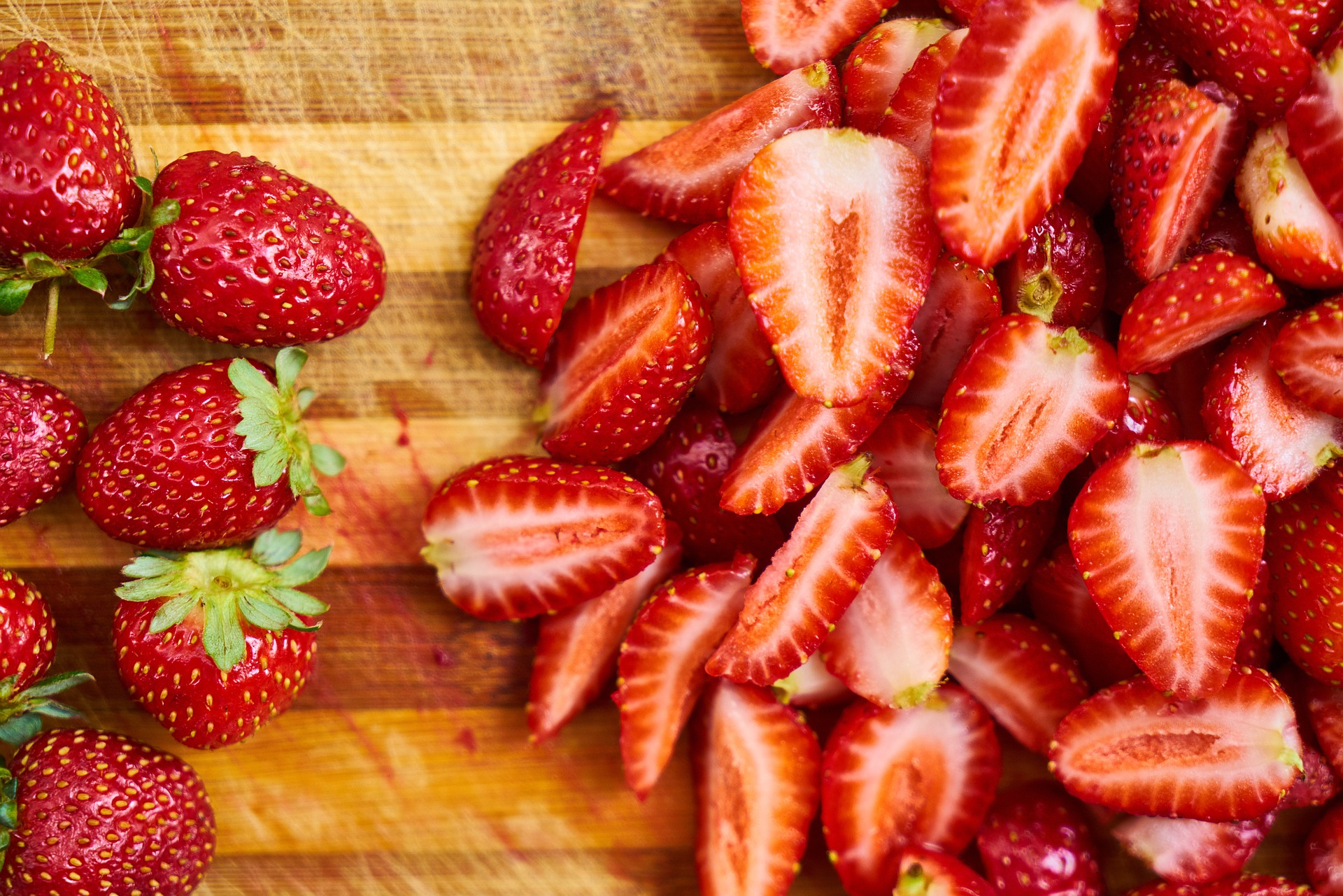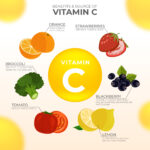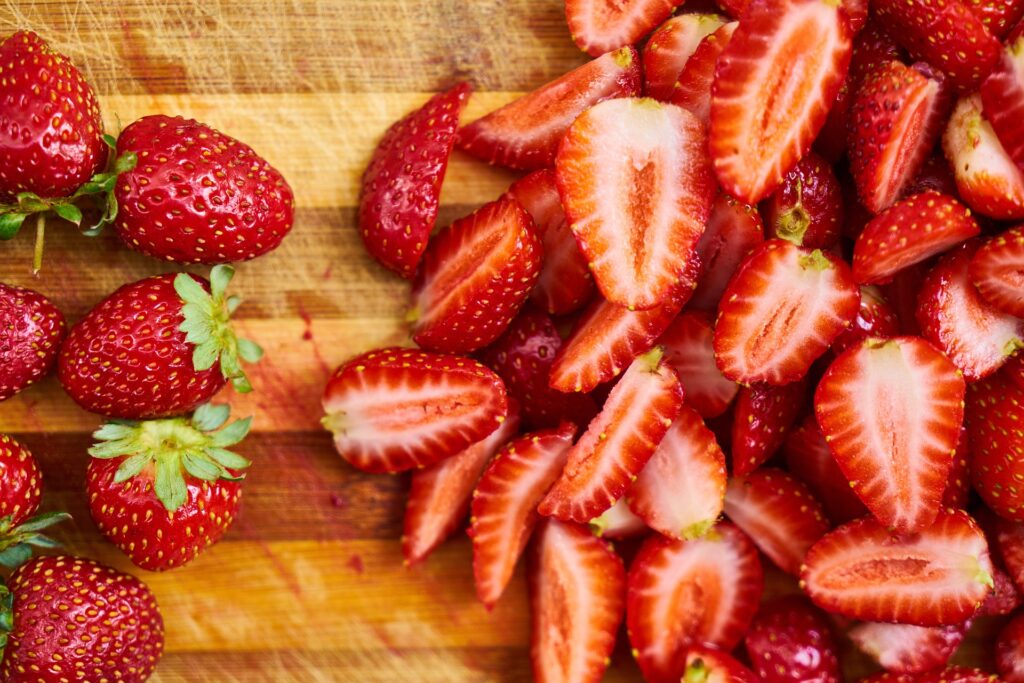
Overview
Inflammation is a natural and necessary response by the body’s immune system to fight off infections, heal injuries, and respond to harmful stimuli. While acute inflammation is essential for healing, chronic inflammation can cause various health problems. Chronic inflammation has been linked to serious conditions such as heart disease, diabetes, arthritis, and certain types of cancer.
Diet plays a vital role in managing inflammation. Consuming anti-inflammatory foods can help reduce inflammation levels in the body, alleviating symptoms of chronic conditions and potentially lowering the risk of developing certain diseases. In this comprehensive guide, we’ll dive into the best anti-inflammatory foods, explore their benefits, and provide practical tips for incorporating them into your daily routine
Table of Contents
Understanding Inflammation
Inflammation is the body’s natural defense mechanism designed to protect against injury, infection, or foreign invaders. There are two main types:
- Acute Inflammation: This is a short-term response that occurs immediately after injury or infection. It helps the body heal by sending white blood cells to the affected area, resulting in symptoms like redness, swelling, heat, and pain. Acute inflammation is crucial for recovery from illnesses and injuries.
- Chronic Inflammation: When inflammation persists for weeks, months, or even years, it is considered chronic. This prolonged response can be triggered by factors such as a poor diet, lack of exercise, smoking, pollution, or autoimmune disorders. Over time, chronic inflammation can damage healthy tissues and organs, contributing to the development of chronic diseases
How Diet Influences Inflammation
Certain foods can either exacerbate or alleviate inflammation. Diets high in processed foods, refined sugars, and unhealthy fats are linked to increased inflammation. On the other hand, a diet rich in whole, nutrient-dense foods with anti-inflammatory properties can help lower inflammatory markers in the body.
The Mediterranean diet is often cited as one of the best anti-inflammatory eating patterns. It emphasizes whole foods such as fruits, vegetables, nuts, seeds, whole grains, and healthy fats, while limiting processed foods and added sugars. This diet has been associated with reduced inflammation and a lower risk of chronic diseases.
Top Anti-Inflammatory Foods to Include in Your Diet
Incorporating anti-inflammatory foods into your diet can support overall health and help manage symptoms related to chronic inflammation. Here are some of the top anti-inflammatory foods and how they benefit your body
Related : How to Boost and Balance Your Metabolism Naturally
Fatty Fish
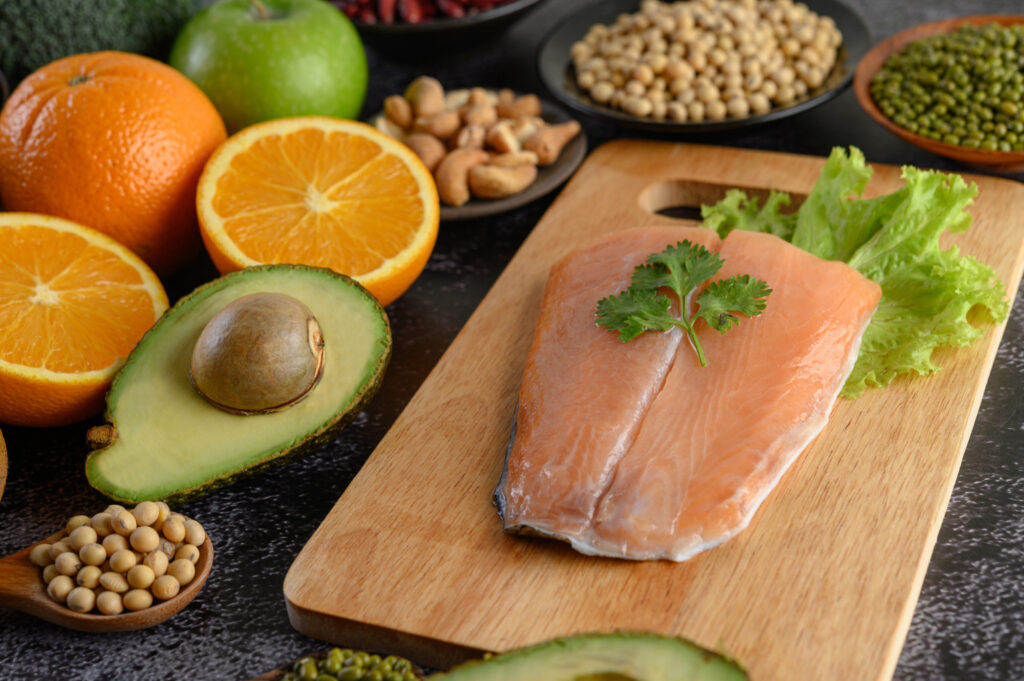
Fatty fish such as salmon, mackerel, sardines, and trout are packed with omega-3 fatty acids, particularly eicosapentaenoic acid (EPA) and docosahexaenoic acid (DHA). These essential fatty acids have been shown to reduce inflammation by lowering the production of inflammatory chemicals called eicosanoids and cytokines
- Reduces Heart Disease Risk: Omega-3 fatty acids help decrease blood pressure, lower cholesterol levels, and prevent plaque buildup in arteries, all of which contribute to a lower risk of cardiovascular disease.
- Improves Joint Health: Regular consumption of omega-3-rich fish can reduce symptoms of rheumatoid arthritis by lowering joint pain and stiffness.
- Supports Cognitive Function: Omega-3s are crucial for brain health, potentially reducing the risk of neurodegenerative diseases like Alzheimer’s.
- How to Include Fatty Fish in Your Diet: Aim to eat fatty fish at least twice a week. Try grilling or baking salmon, adding mackerel to salads, or incorporating sardines into sandwiches
Leafy Green Vegetables
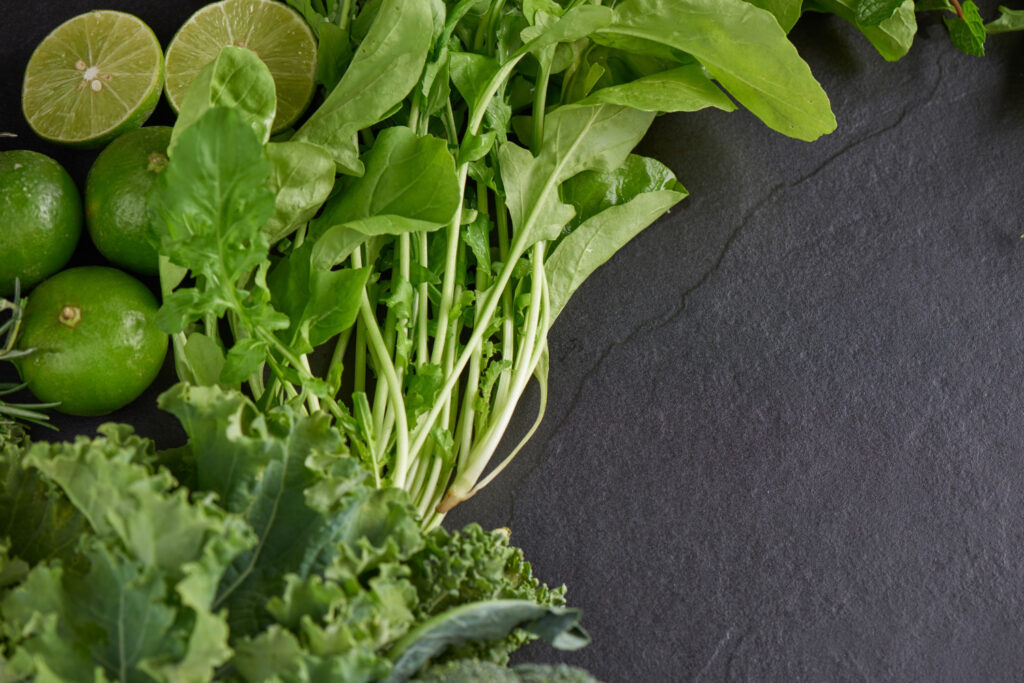
Leafy greens such as spinach, kale, collard greens, and Swiss chard are loaded with vitamins A, C, and K, as well as fiber and other nutrients. They are rich in polyphenols and carotenoids, which act as antioxidants to combat inflammation and oxidative stress in the body
- Reduces Inflammatory Markers: Leafy greens are known for their high content of vitamin K, which has been linked to lower levels of inflammation in the body.
- Supports Eye Health: Antioxidants like lutein and zeaxanthin found in these vegetables help protect against age-related macular degeneration.
- Promotes Digestive Health: The fiber content in leafy greens supports gut health by promoting regular bowel movements and nurturing healthy gut bacteria.
- How to Include Leafy Greens in Your Diet: Add them to salads, smoothies, soups, or as a side dish. Sautéing kale with garlic and olive oil or adding spinach to your morning smoothie are easy ways to boost your intake
Related : The Warning Signs of a Stroke
Berries
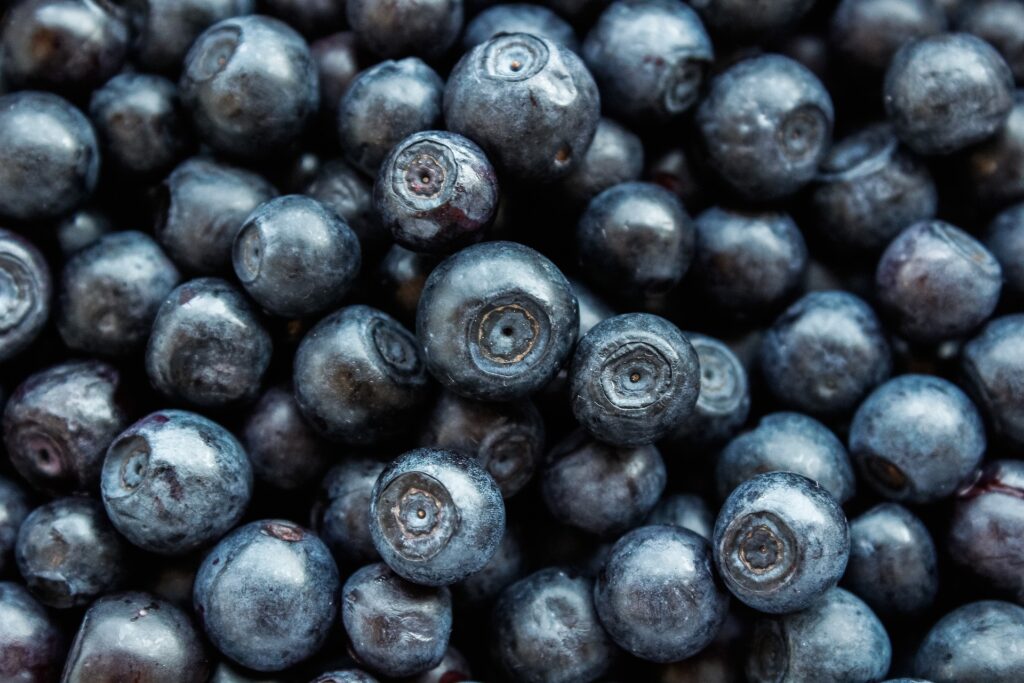
Berries such as blueberries, strawberries, raspberries, and blackberries are not only delicious but also rich in fiber, vitamins, and a wide range of polyphenols. The most notable of these polyphenols are anthocyanins, which give berries their vibrant color and possess strong anti-inflammatory properties
- Protects Against Heart Disease: Regular consumption of berries has been associated with a reduced risk of heart disease due to their ability to improve cholesterol levels and blood pressure.
- Enhances Brain Function: The antioxidants in berries help protect brain cells from oxidative damage, which may improve memory and delay cognitive aging.
- Aids in Blood Sugar Control: The fiber in berries slows the absorption of sugar, which helps manage blood sugar levels.
- How to Include Berries in Your Diet: Enjoy berries as a snack, add them to yogurt, cereals, or oatmeal, or blend them into smoothies. Frozen berries can be used year-round and retain their nutritional value
Nuts and Seeds

Nuts like almonds, walnuts, and seeds such as flaxseeds, chia seeds, and pumpkin seeds are nutrient-dense foods that provide healthy fats, fiber, protein, and a variety of vitamins and minerals. Walnuts, in particular, are rich in omega-3 fatty acids, while flaxseeds and chia seeds offer plant-based sources of alpha-linolenic acid (ALA)
- Supports Heart Health: The healthy fats in nuts and seeds help reduce cholesterol levels and lower the risk of heart disease.
- Promotes Weight Management: The combination of fiber, protein, and healthy fats helps keep you full, which can prevent overeating and aid in weight control.
- Reduces Inflammation: The omega-3s in nuts like walnuts, as well as the antioxidant properties of vitamin E found in almonds, help reduce inflammation throughout the body.
- How to Include Nuts and Seeds in Your Diet: Add them to salads, oatmeal, or yogurt, or use nut butters as spreads. You can also sprinkle chia or flaxseeds into smoothies for a nutrient boost
Related : Top Foods High in Iron
Olive Oil
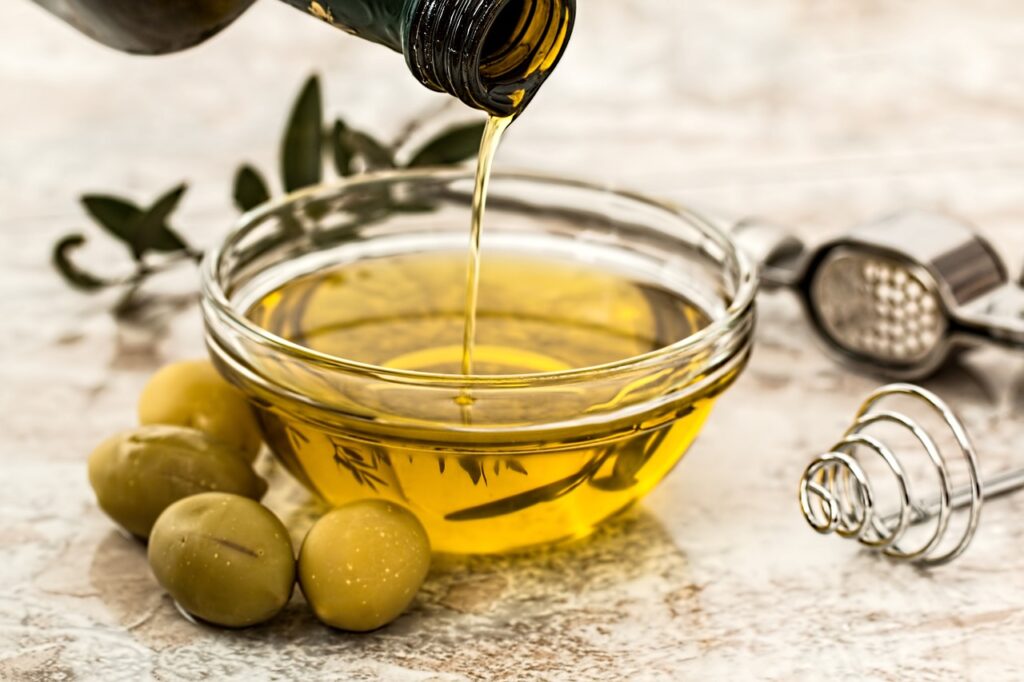
Olive oil, particularly extra virgin olive oil, is a staple in anti-inflammatory diets such as the Mediterranean diet. It contains a compound called oleocanthal, which has anti-inflammatory properties similar to ibuprofen
- Protects Against Chronic Diseases: Regular consumption of olive oil is linked to a reduced risk of diseases such as heart disease, diabetes, and certain cancers.
- Supports Skin Health: The antioxidants in olive oil can help protect the skin from oxidative damage.
- Promotes Joint Health: Olive oil’s anti-inflammatory properties can alleviate joint pain and stiffness, especially in conditions like rheumatoid arthritis.
- How to Include Olive Oil in Your Diet: Use olive oil as a salad dressing, drizzle it over cooked vegetables, or use it as a cooking oil. It’s best consumed raw or with minimal heating to preserve its health benefits.
Turmeric
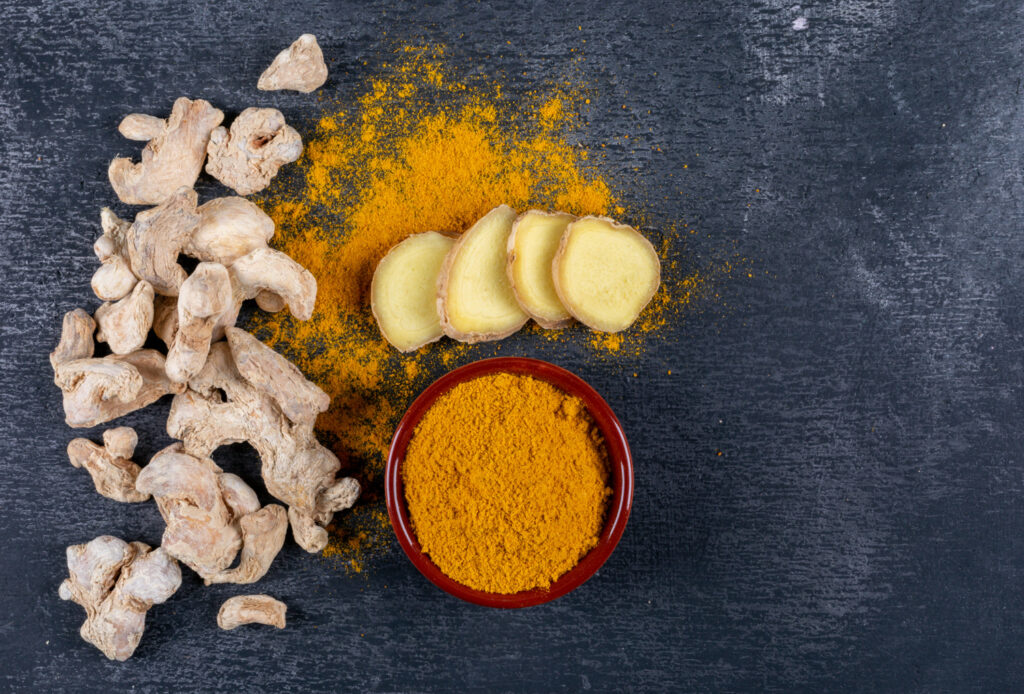
Turmeric is a bright yellow spice commonly used in Indian cuisine, known for its powerful anti-inflammatory and antioxidant properties due to the compound curcumin. Research shows that curcumin can inhibit several molecules known to play major roles in inflammation
- Reduces Pain and Stiffness: Curcumin supplements have been shown to reduce symptoms of arthritis and other inflammatory conditions.
- Improves Mood: Some studies suggest that curcumin may have antidepressant effects, potentially due to its anti-inflammatory and antioxidant actions.
- Enhances Digestive Health: Curcumin supports the digestive system by promoting bile production, which aids in digestion.
- How to Include Turmeric in Your Diet: Add turmeric to curries, soups, or smoothies. For better absorption, consume it with black pepper, which contains piperine, a compound that boosts curcumin absorption by up to 2,000%
Tomatoes
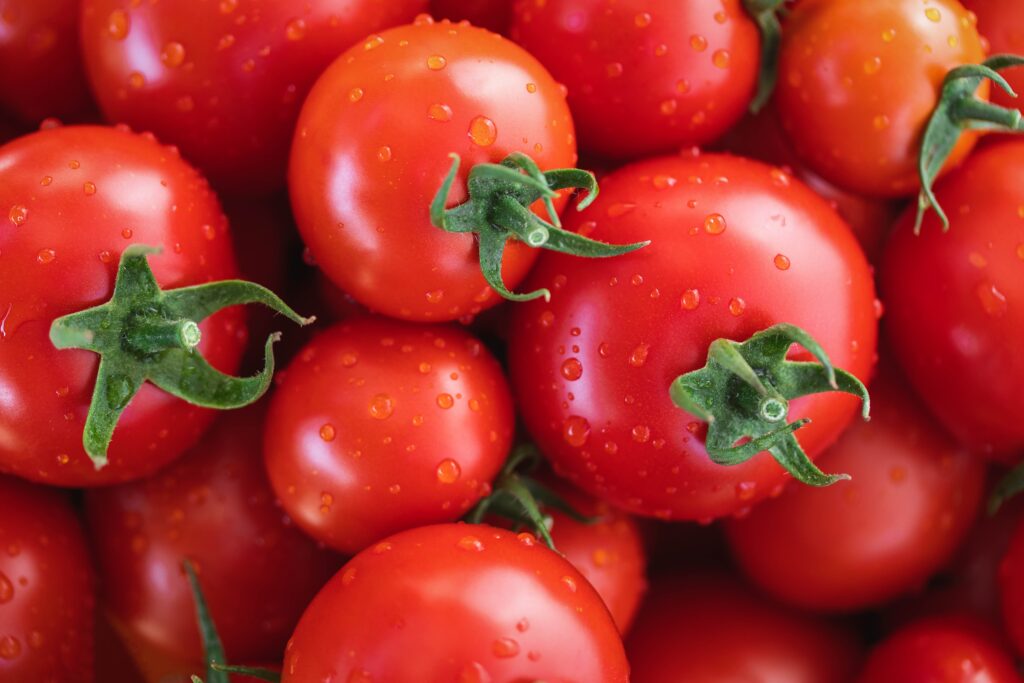
Tomatoes are rich in lycopene, a potent antioxidant that helps reduce inflammation, especially in the lungs. Cooked tomatoes, such as in sauces or soups, increase the bioavailability of lycopene, making it more accessible for the body to use
- Protects Against Certain Cancers: Lycopene consumption has been associated with a reduced risk of prostate and lung cancers.
- Improves Heart Health: Regular consumption of tomatoes helps lower cholesterol levels and reduces blood pressure, benefiting cardiovascular health.
- Supports Eye Health: The high levels of vitamin C and lycopene in tomatoes protect the eyes from oxidative stress.
- How to Include Tomatoes in Your Diet: Enjoy tomatoes in salads, sauces, soups, or as part of cooked dishes
Related : The Best Brain Foods to Boost Concentration and Mental Clarity
Green Tea
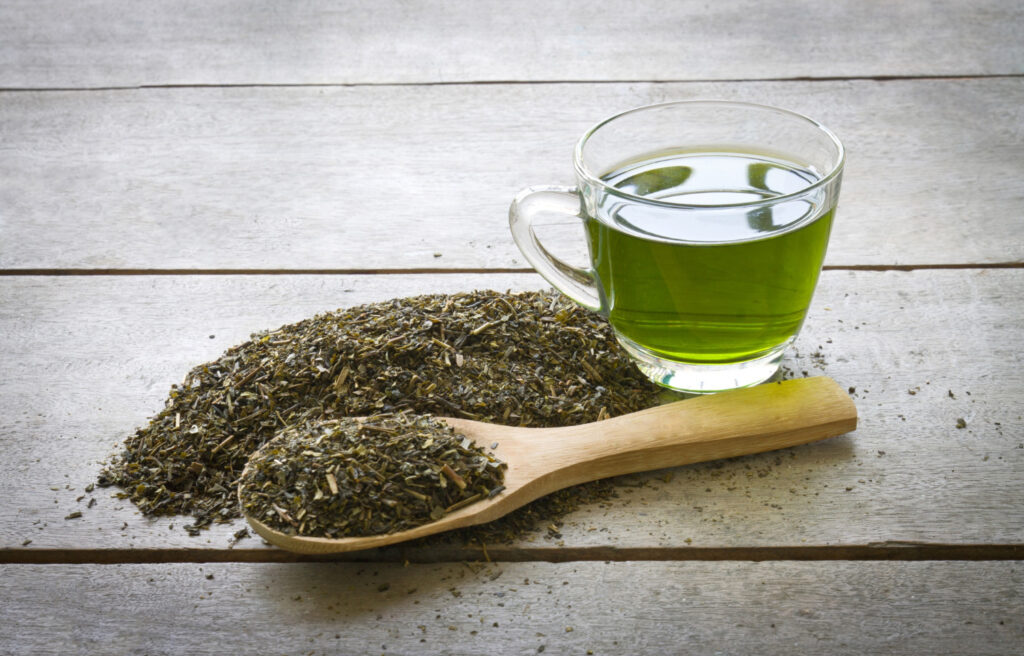
Green tea is widely known for its health benefits, primarily due to its high content of polyphenols, particularly epigallocatechin gallate (EGCG). EGCG is a powerful antioxidant that can reduce inflammation and help protect cells from damage
- Reduces Risk of Heart Disease: Regular consumption of green tea has been linked to a lower risk of heart disease, thanks to its ability to improve blood vessel function and lower blood pressure.
- Aids in Weight Loss: Green tea can help boost metabolism and increase fat burning, which may aid in weight management.
- Protects Brain Health: The anti-inflammatory properties of EGCG have been associated with improved cognitive function and a reduced risk of neurodegenerative diseases.
- How to Include Green Tea in Your Diet: Drink a cup of green tea daily, either hot or iced. For added flavor, consider adding a squeeze of lemon, which can also boost the absorption of antioxidants
Garlic
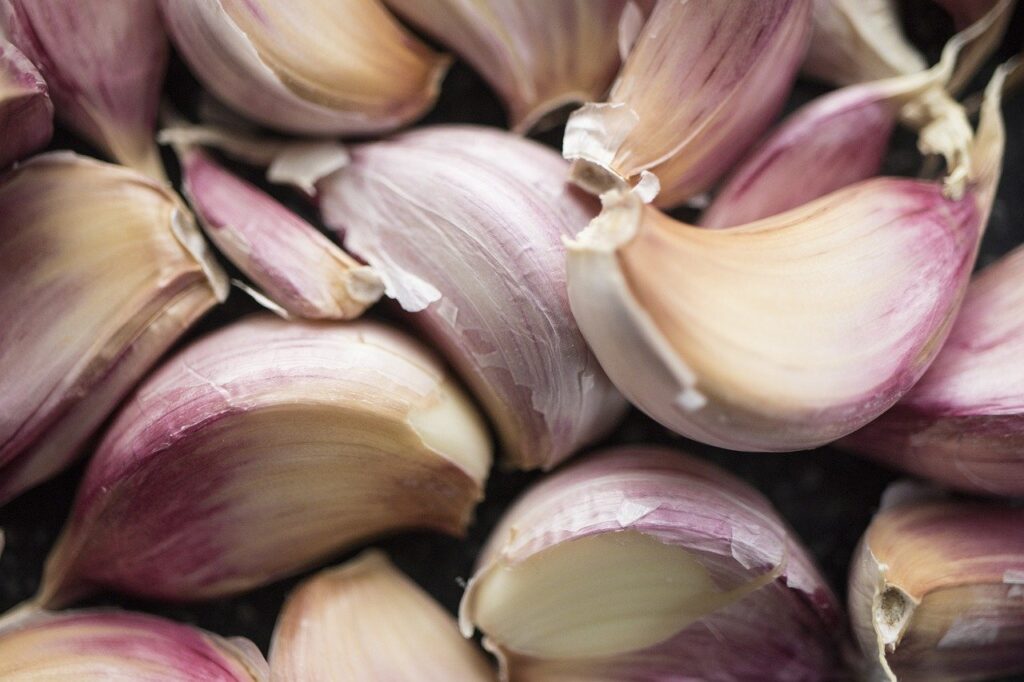
Garlic is a potent anti-inflammatory herb, thanks to its sulfur-containing compounds, such as allicin. These compounds have been shown to help reduce the production of substances that trigger inflammation
- Boosts Immune System: Garlic is well-known for its immune-boosting properties, which can help protect against infections.
- Reduces Inflammation in Arthritis: Studies suggest that garlic supplements may reduce symptoms of osteoarthritis and other inflammatory conditions.
- Supports Heart Health: Garlic has been shown to help lower cholesterol levels and blood pressure, contributing to a reduced risk of cardiovascular disease.
- How to Include Garlic in Your Diet: Use garlic in cooking to add flavor to soups, sauces, and stir-fries. For maximum benefits, crush or chop garlic and let it sit for a few minutes before cooking, as this helps activate its anti-inflammatory compounds.
Ginger
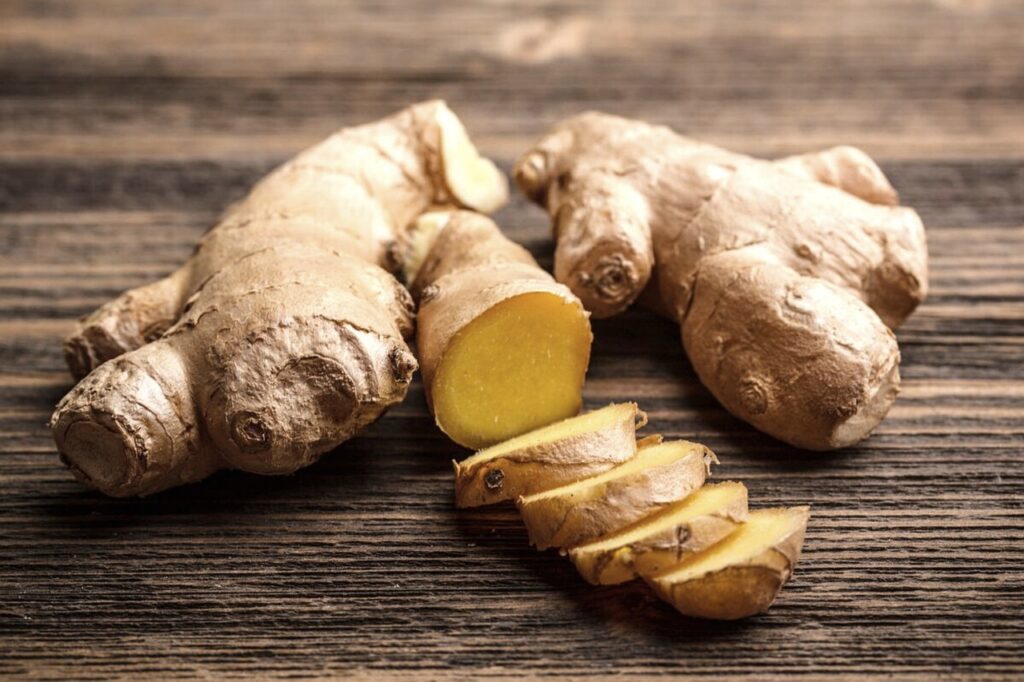
Ginger is a spice with powerful anti-inflammatory and antioxidant properties. The active compounds in ginger, such as gingerol, can help reduce inflammation and relieve pain associated with conditions like arthritis
- Alleviates Digestive Issues: Ginger has long been used to treat nausea and improve digestion, making it a common remedy for motion sickness and morning sickness.
- Reduces Muscle Pain: Consuming ginger may help reduce muscle soreness after exercise, thanks to its anti-inflammatory effects.
- Lowers Blood Sugar Levels: Some studies suggest that ginger can improve insulin sensitivity, which helps control blood sugar.
- How to Include Ginger in Your Diet: Add fresh ginger to teas, smoothies, or stir-fries. You can also use ground ginger in baked goods for a spicy, warming flavor
Avocados
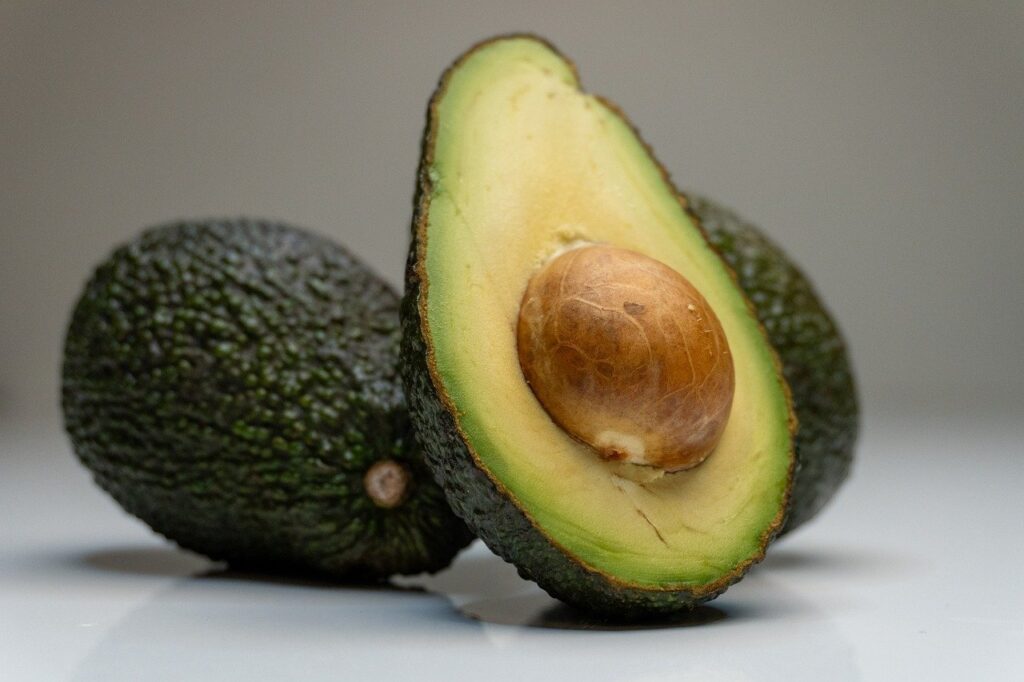
Avocados are packed with monounsaturated fats, fiber, vitamins, and minerals, making them one of the healthiest fruits you can eat. They contain carotenoids and tocopherols, which are known to reduce inflammation
- Supports Heart Health: The healthy fats in avocados help lower bad cholesterol (LDL) and increase good cholesterol (HDL), reducing the risk of heart disease.
- Promotes Healthy Skin: The fats and antioxidants in avocados nourish the skin and protect it from inflammation and damage.
- Aids in Nutrient Absorption: Avocados can enhance the absorption of fat-soluble nutrients, such as vitamins A, D, E, and K.
- How to Include Avocados in Your Diet: Enjoy avocados in salads, sandwiches, or as guacamole. You can also add them to smoothies for a creamy texture.
Foods to Avoid for Reducing Inflammation
Just as some foods can reduce inflammation, others can exacerbate it. To support an anti-inflammatory diet, limit the following foods:
- Processed Foods and Refined Sugars: These can increase blood sugar levels, triggering an inflammatory response.
- Trans Fats: Found in fried foods, some margarines, and processed snacks, trans fats can raise inflammatory markers.
- Excessive Alcohol: While moderate alcohol consumption may have some health benefits, excessive drinking can increase inflammation.
- Refined Carbohydrates: White bread, pastries, and other refined carbs can cause spikes in blood sugar and increase inflammation
Practical Tips for an Anti-Inflammatory Diet
To make the most of an anti-inflammatory diet, consider the following tips:
- Incorporate a variety of colorful fruits and vegetables into your meals. The different colors often indicate various antioxidants and phytochemicals that can help reduce inflammation.
- Include healthy fats, such as those found in olive oil, avocados, and nuts, to support overall health.
- Use herbs and spices like turmeric, ginger, and garlic to flavor your food while adding anti-inflammatory benefits.
- Stay hydrated by drinking plenty of water and herbal teas to help the body flush out toxins and maintain optimal health.
- Balance your meals with protein, healthy fats, and fiber-rich foods to help stabilize blood sugar levels and reduce inflammatory responses.
The Takeaway
Chronic inflammation is a key factor in many health problems, but the good news is that you can manage it through dietary choices. By including anti-inflammatory foods such as fatty fish, leafy greens, berries, and nuts in your diet, you can help your body fight inflammation naturally. It’s also crucial to avoid foods that contribute to inflammation, like processed foods, refined sugars, and trans fats.
Making small changes to your diet can have a significant impact on your overall health. Start by gradually incorporating more anti-inflammatory foods into your meals and see how they can help improve your quality of life. Remember, the path to better health starts with the food on your plate
Frequently Asked Questions
What are anti-inflammatory foods, and why are they important?
Anti-inflammatory foods are those that help reduce inflammation in the body. They contain nutrients such as antioxidants, omega-3 fatty acids, and polyphenols, which can help protect cells from damage, reduce chronic inflammation, and lower the risk of diseases like heart disease, arthritis, and diabetes.
How quickly can an anti-inflammatory diet show results?
The time it takes to notice benefits from an anti-inflammatory diet varies from person to person. Some people may start experiencing relief from symptoms like joint pain or digestive issues within a few weeks, while others may take several months to see noticeable changes. Consistency and overall lifestyle factors also play a significant role.
Are there any specific foods I should avoid to reduce inflammation?
Yes, certain foods can increase inflammation, including processed foods, refined sugars, trans fats, excessive alcohol, and refined carbohydrates. Avoiding or limiting these can help manage inflammation more effectively.
Can anti-inflammatory foods help with weight loss?
Yes, an anti-inflammatory diet can aid in weight loss by promoting healthier food choices and reducing inflammatory markers that are linked to obesity. Foods like berries, green tea, avocados, and nuts can help stabilize blood sugar and boost metabolism, supporting weight management.
Is it necessary to take supplements for an anti-inflammatory diet?
While it’s best to get nutrients from whole foods, some people may benefit from supplements like omega-3 fish oil, turmeric, or ginger if they cannot get enough from their diet alone. Always consult with a healthcare professional before starting any new supplements
Can an anti-inflammatory diet help with conditions like arthritis?
Yes, anti-inflammatory foods can help alleviate symptoms of arthritis and other inflammatory conditions. Foods rich in omega-3 fatty acids (like fatty fish) and antioxidants (like leafy greens) can reduce joint pain and stiffness, making them beneficial for individuals with arthritis.
